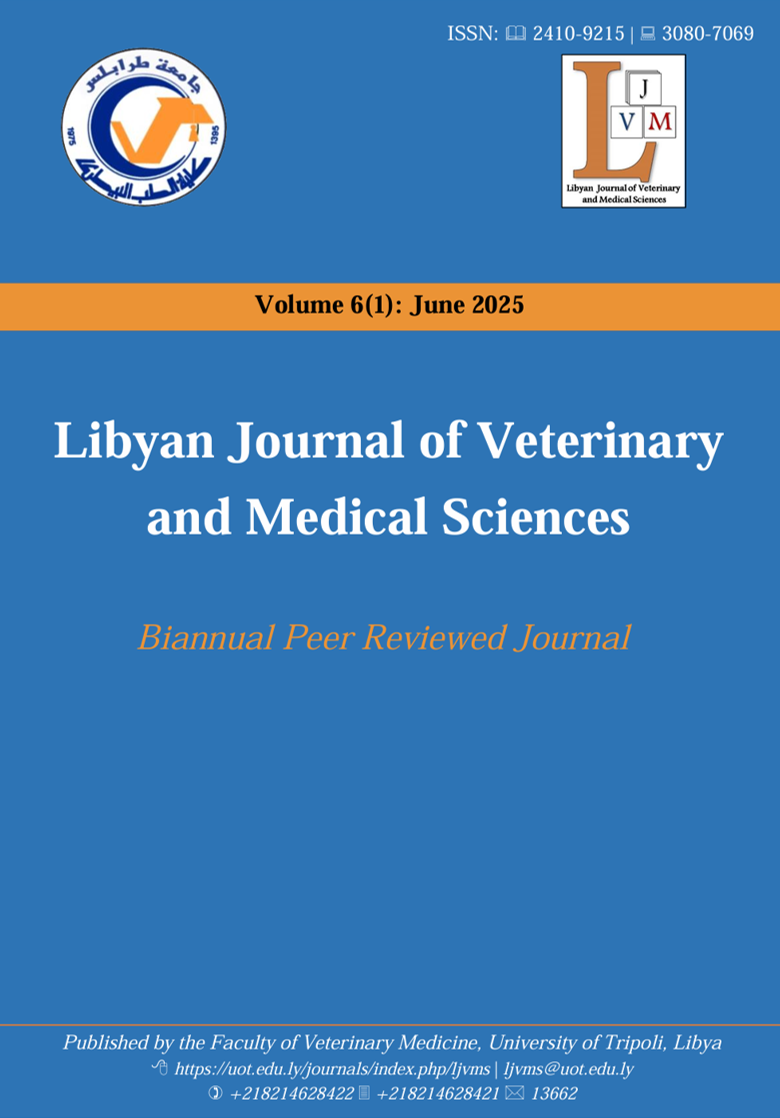Demographic and Clinical Characteristics of Breast Cancer at the National Cancer Center in Benghazi
Keywords:
breast cancer,, invasive ductal carcinoma, chemotherapy, radiotherapy, recurrence, BenghaziAbstract
Background: Breast cancer ranks among the top five cancers in Libya, with incidence rates varying globally and generally lower in African countries such as Libya and Nigeria. Aim: This study aimed to characterize the demographic and clinical profiles of breast cancer patients treated at the Oncology Department of the National Cancer Center in Benghazi, Libya. Methods: A retrospective cross-sectional study was conducted at the aforementioned department from February to August 2024. The study included 100 patients. Patients’ data were extracted from medical records and analyzed using Microsoft Excel 2016. Results: The study patients comprised predominantly Libyan females, with a mean age of 55.4 years. Most patients (98%) were non-smokers and diabetes was the most frequently reported comorbidity. Nearly half (49%) of patients had no family history of breast cancer. Invasive ductal carcinoma was the predominant tumor type. Surgical treatment was the primary modality, frequently combined with chemotherapy and radiotherapy. Conclusion: The breast cancer patient population in this study was mainly female with an average age of 55.4 years. The high prevalence of diabetes underscores potential lifestyle influences on breast cancer risk. The absence of family history in nearly half of the cases emphasizes the importance of broad-based awareness and screening programs.









